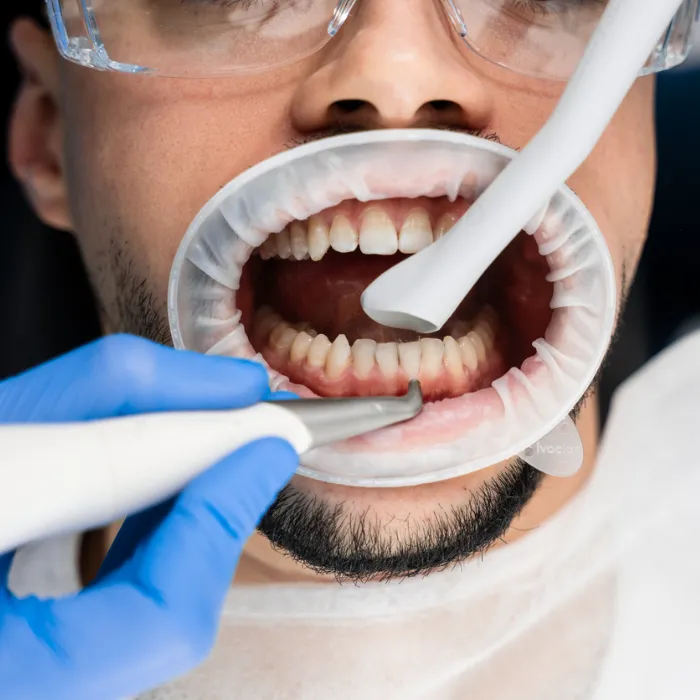Why is dental hygiene important?
- because dental hygiene treatment is not just a simple tooth cleaning, but also an assessment of the condition of the oral cavity and teeth
- because it can eliminate bad breath, primary discolouration, deposits
- because regular dental hygiene treatment can detect and correct other dental problems in time
- because aftercare and cleaning of various dental restorations increases their lifespan
- because individualised oral hygiene advice is also provided during treatment
- because you get professional help in choosing the right toothbrush and toothpaste
- because a beautiful smile starts with healthy gums
- because inflamed gums can lead to premature birth in pregnant women
- because in people with gum disease, significant improvements can be achieved by reducing inflammation
- because the guided biofilm therapy used in treatment reduces the number of harmful bacteria that can travel through the blood and lymph stream and cause inflammation in other areas of the body
- because inflamed, bleeding gums can cause eating difficulties
- because inflamed gums can prevent correct fillings or dentures
What happens during a dental hygiene treatment?
- First of all, we find out about the patient's complaints.
- This is followed by a thorough, comprehensive oral examination.
- An important step is a scan of the current condition, which helps us to make the problem areas visible to the patient. Thanks to modern technology, you can see your teeth as never before.
- The scans are followed by a painless cleaning with our EMS AirFlow equipment: we use salt polish to remove invisible bacterial biofilm and surface discolouration, followed by ultrasonic scaling, and then polishing with a polishing paste to finish the treatment.
- At the end of the treatment, we will make a personalised recommendation on the type of toothbrush, toothpaste and other oral hygiene equipment to be used, and help you learn the correct technique.
- Finally, we will arrange a personalised appointment for the next recommended professional cleaning.
How often should I have the treatment?
- For patients with healthy teeth, every six months to once a year, depending on their tendency to tartar build-up. Occasionally, we may recommend something different from the average: typically for patients with crowded dentition, wearing braces or having a prosthesis.
- Those with periodontal disease require much more frequent follow-up: professional cleaning may be warranted up to every 2-3 months.
Our related doctors
Any questions before booking an appointment?
If you are unsure which doctor to see or what examination you require, we are here to help!
Simply request a free callback from one of our colleagues, who will help you find the right specialist based on your specific issue.





